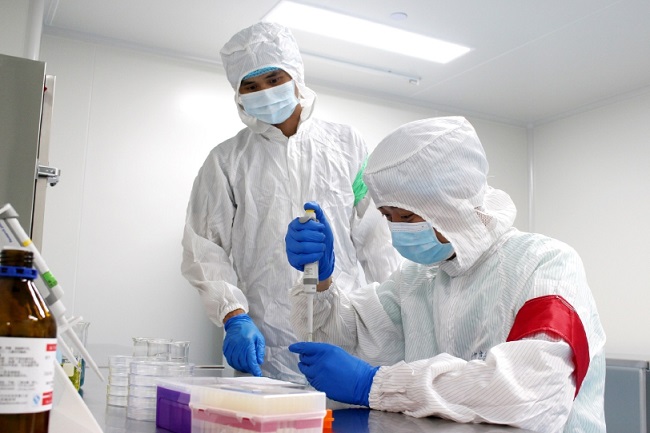Biotech and health industry thrives in Beijing E-Town

Staff of a company conduct experimental research.
The biotechnology and health industry thrives in the Beijing Economic-Technological Development Area (Beijing E-Town) and presents new product and cooperation opportunities.
Cygnus, a national high-tech enterprise based in Beijing E-Town, has recently released a "hereditary tumor susceptibility gene testing" product. Based on authoritative guidelines and databases at home and abroad, the product can be used to test more than 90 common genes that cause over 20 hereditary tumors such as colorectal cancer, breast cancer and stomach cancer, aiding in early and precise tumor prevention and diagnosis.
A major feature of this product is its convenient and flexible testing methods. The product supports various sample types such as peripheral blood, genomic DNA, and it is suitable for use at multiple settings, including hospital departments, medical examination centers, community health centers and internet healthcare. It can also be used by tumor patients, individuals with a family history of tumors and people without known tumor risks but concerned about their health.
In addition, CelArts and Huanshenghui Health Management have recently signed a strategic cooperation agreement, aiming to accelerate the advancement of cell biology-related technologies and precision health management services.
CelArts possesses the cutting-edge CelArts-DC technology platform, having a human DC cell resource library and an industry-leading innovative transformation technology platform. Meanwhile, Huanshenghui has a well-developed system, rich experience, and strong capabilities in the field of precision health management. This collaboration signifies another milestone for CelArts in the field of life and health management.
Beijing E-Town has gathered more than 4,900 pharmaceutical and health enterprises, covering the entire spectrum of the medical and health industry. The output value of the medical and health industry in Beijing E-Town is close to 100 billion yuan ($14.25 billion), accounting for nearly half of Beijing's total and ranking first in the Chinese capital.


